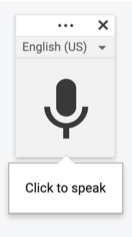Congratulations!
Having learned the value of creating your content before starting your website project, and come up with the list of questions you need to answer in your web visitors’ minds, you’re almost ready to grab your visitors by the hand and draw them through the ether of the internet to stroll with you along the delightful riverbank of your business. Before they know it, they’ll be as entranced with the business as you are. In no time, they’ll be planning on spending weekends here fishing the river with you.
I say that a little tongue-in-cheek, but we’ve all had the experience of being grabbed and held by an old idea expressed in a compelling way. Often those are the ideas that move us to do something about them. It’s very possible that something like that experience resulted in your getting into the business you’re in, and I assure you that creating that sort of experience for your visitors will lead many of them to choose to purchase your product or service even if initially they aren’t inclined to.
But here’s the unpleasant truth: creating that experience for your visitors isn’t an easy thing. It can be quick, but it will be dirty and hard. Resign yourself to that. But you’re not to the hard step yet. This step of the process, once you’ve got your list of questions, is pretty straightforward, and probably expected: you have to answer your questions.
Now, don’t groan! Remember, I told you this is still the easy part. I don’t want you to sit there and type out answers to these questions. Remember, you’ve got them in a Google doc, and that affords you a special tool that really does make this step easy. In your Google doc under the Tools menu you will find an option called Voice typing. When you select that option there will pop up a microphone icon, which by activating will give you an automatic transcription of your spoken words.

With this tool activated, simply speak your answer to each question fully. Pretend that someone is sitting next to you and fascinated with your business, so explore it for him or her. At first it will feel a little bit strange, but after just a minute or two, if you’re like most people, you’ll find that the words come out much more quickly and easily vocally than if you were to try to type them.
As you begin the process of voice typing, it’s important that you just speak your mind. Don’t worry about if it sounds good or not; all you’re interested in is getting it all out there. You might even want to answer each question two or three times so you have a sizable chunk of text answering each of those questions.
Just ramble. The goal here is not to produce anything that’s actually very good, but just to produce a lot of it. You’re going to go back later on and clean this up (that’s the hard part) but at this point you just want to have quite a lot of source material that you can sift through later.
This would be an appropriate time for me to caution you to not get attached to anything that you say here. Most of this will be banal, even boring. If you look back at what you’ve just voice-typed and think, “Nobody’s going to want to read this garbage; I was just shooting off my mouth and there’s no way I’m putting this online,” that’s actually a good thing. It’s important that you not be attached to what you’ve just written—you’re not going to keep much of it.
Here’s what you’ve just done, though: you’ve produced enough source material that along with all the sand, mud, and sludge you’ve dredged up from the bed of your river, you’ve also pulled up some nuggets of gold. Just giving what you’ve written a cursory once-over right now won’t be enough for you to find those nuggets, but they’re there, all right, if you really let yourself go when you answered the questions.
But I don’t want you to start looking for those nuggets yet. You should let what you’ve written sit for a little while, just like you let your questions sit, but for a different reason. Your questions sat so your subconscious would work on them in the background. Your answers should sit so you’ll forget what you said and just how you said it. Forget the precise words you used so that when you do go sifting through for nuggets, it’ll be like looking through someone else’s words. You’ll be able to treat them more objectively and see the gold in there rather than thinking it’s all gold.
The next step of the process is the most difficult one, but don’t worry about that just yet. Relax for a little bit, knowing you’re on your way to striking it rich! When you’re ready, head on over to the last step of the process and learn how to cut it back into something special.
Need some help with those nuggets? Contact us for a consultation and we'll help you dig right in.






